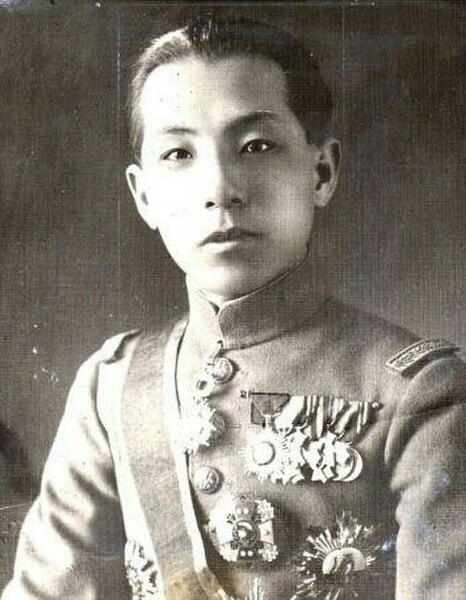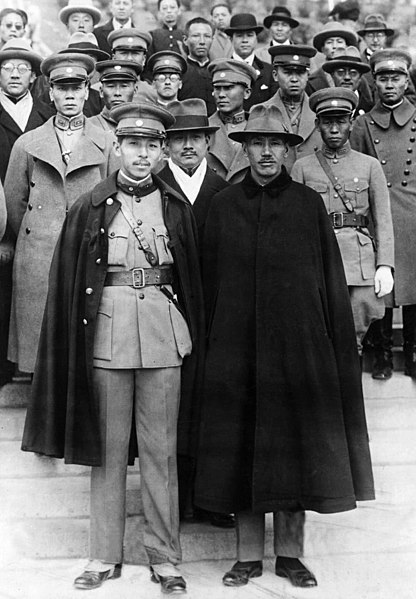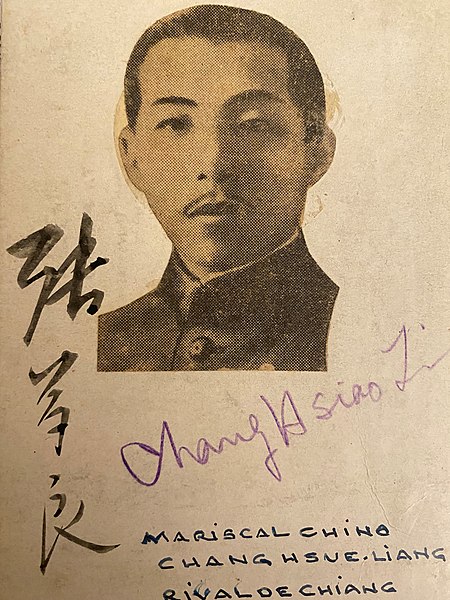Former Residence of Chang Hsüeh-liang (Hsinchu County)
The Former Residence of Chang Hsüeh-liang is a museum about Chang Hsüeh-liang in Wufeng Township, Hsinchu County, Taiwan.
Former Residence of Chang Hsüeh-liang (Hsinchu County)
Chang Hsüeh-liang
Chang Hsueh-liang, also romanized as Zhang Xueliang and known later in life as Peter H. L. Chang, was a Chinese warlord who ruled Manchuria from 1928 to 1936 and the commander-in-chief of the Northeastern Army after the assassination of his father, Zhang Zuolin. A reformer who was sympathetic to nationalist ideas, he completed the official reunification of China at the end of the Warlord Era by pledging loyalty to the Nationalist government in Nanjing. He nonetheless retained Manchuria's de facto autonomy until the Empire of Japan invaded and occupied the region in 1931. He was frustrated by Chiang Kai-shek's policy of "first internal pacification, then external resistance" and helped plan and lead the 1936 Xi'an Incident. Northeastern soldiers under Chang's command arrested Chiang to force him to negotiate a Second United Front with the Chinese Communist Party against Japan. Chiang eventually agreed, but upon his release he had Chang arrested and sentenced to 50 years of house arrest, first in mainland China and then in Taiwan. Although never personally a communist, Chang is regarded by the Chinese Communist Party and the People's Republic of China as a patriotic hero for his role in ending the encirclement campaigns and beginning the war of resistance against Japan.

Chang in 1928
Chang with Chiang Kai-shek in November 1930.
Chang and Chiang with their respective wives, Yu Feng Tze and Soong Mei-ling.
Autograph of Chang Hsueh-liang (c. 1930s).






